Objets Κέντρον Ερεύνης Ελληνικής Φιλοσοφίας
<< 10
10 >>
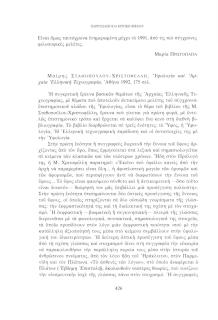
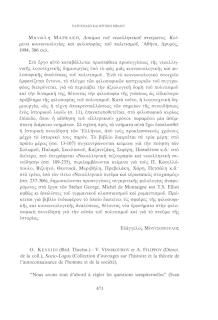
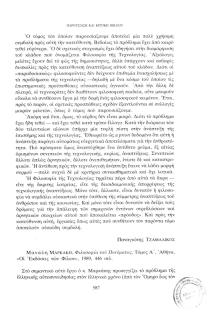
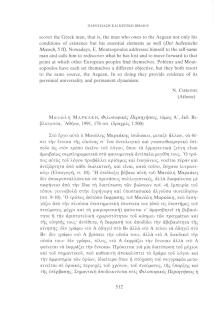
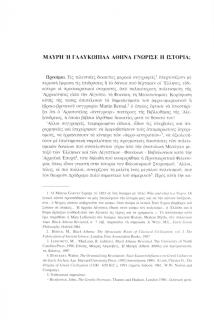
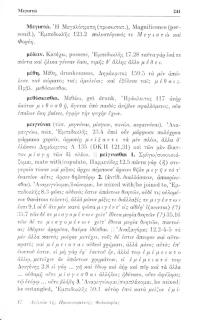
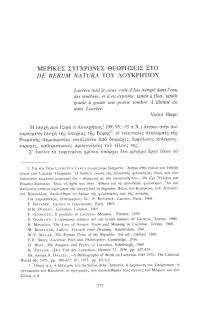
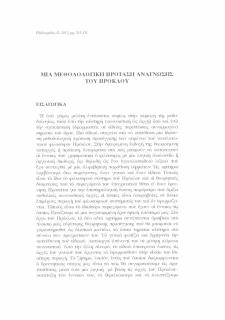
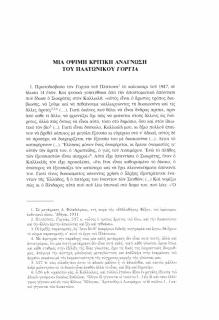
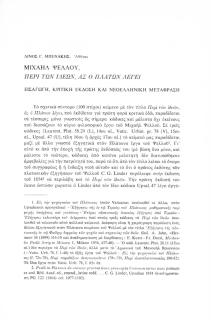
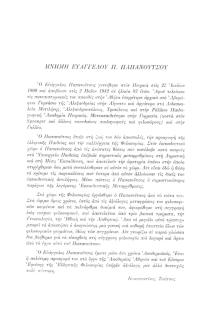
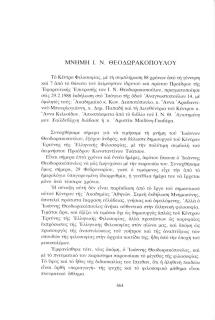 << 10
10 >>
<< 10
10 >>
Total: 4244

Μαίρης Σταθοπούλου - Χριστοφέλλη, Υφολογία και Αρχαία Ελληνική Τεχνογραφία, Αθήνα 1992, 175 σελ.
Ενότητα: Άρθρα του περιοδικού "Φιλοσοφία"
Δεν υπάρχει περιγραφή
Μανώλη Μαρκάκη, Δοκίμια του Νεοελληνικού Πνεύματος, Κείμενα κοινωνιολογίας και φιλοσοφίας του πολιτισμού, Αθήνα, Δρυμός, 1994, 306 σελ.
Ενότητα: Άρθρα του περιοδικού "Φιλοσοφία"
Δεν υπάρχει περιγραφή
Μανώλη Μαρκάκη, Φιλοσοφία του Πνεύματος, Τόμος Α΄, Αθήνα, «Οι εκδόσεις των Φίλων», 1989, 446 σελ.
Ενότητα: Άρθρα του περιοδικού "Φιλοσοφία"
Δεν υπάρχει περιγραφή
Μανώλη Μαρκάκη, Φιλοσοφικές Περιηγήσεις, τόμος Α΄, εκδ. Βιβλιογονία, Αθήνα, 1991, 176 σ.σ. (δραχμές 1.500)
Ενότητα: Άρθρα του περιοδικού "Φιλοσοφία"
Δεν υπάρχει περιγραφή
Μαύρη ή γλαυκώπιδα Αθηνά γνώρισε η ιστορία;
Ενότητα: Άρθρα του περιοδικού "Φιλοσοφία"
Δεν υπάρχει περιγραφή
Μεγιστώ
Ενότητα: Λεξικό Προσωκρατικής Φιλοσοφίας
Η Μεγαλόπρεπη (προσωποπ.)
Μερικές σύγχρονες θεωρήσεις στο De Rerum Natura του Λουκρητίου
Ενότητα: Άρθρα του περιοδικού "Φιλοσοφία"
In Lucretius΄ unique for its time didactic poem De rerum natura (On the Nature of things) the philosopher΄s penetrating insight and the poet΄s inspiration coexist in an extraordinary creation. The prevailing idea in the poem with which he interprets the cosmological phenomenays the concept of the infinite multitude and the infinite magnitude, which concept is based on three propositions: 1. Space is an area of infinite extension. 2. Matter in the universe consists of an infinite number of absolute solids. 3. Time has infinite duration. Lucretius is deeply influenced by Greek philosophy. He accepts as an axiom the existence of infinite atoms, homogeneous as to substance but different in shape, magnitude and weight, and it is to these, as well as to the differences of the movements of the positions and their combinations that he attributes the variety of the forms. He further maintains that the Universe is infinite as well as the number of worlds, positions which are today accepted. For the poet an infinite multitude of elements is a m...
Μια μεθοδολογική πρόταση ανάγνωσης του Πρόκλου
Ενότητα: Άρθρα του περιοδικού "Φιλοσοφία"
This study aims at formulating a specific methodological proposal on how to approach the texts of the Neoplatonist philosopher Proclus. Viewed initially in its wider aspect, this proposal refers to how the concepts used by the philosopher can be classified in a logical sequence, or instrumental succession, i.e. not as an encyclopedic dictionary composed by means of lemmata in alphabetical order. As a criterion we take two factors into consideration, the one being general and the other being specific. The general one is Proclus' philosophical system itself and the theoretical obligations posited to a researcher by its content in a compulsory way. The specific one is the particular content of the concepts we examine in one of our research projects. The topic within which the aim of our research is formulated is how we would construct the presuppositions throughout a logical classification of Proclus' concepts - based on his own principles - in order to establish and develop a theory about Henology and about Metaphysics. In order to fulfill s...
Μια όψιμη κριτική ανάγνωση του Πλατωνικού Γοργία
Ενότητα: Άρθρα του περιοδικού "Φιλοσοφία"
Après plusieures lectures de Gorgias à des divers âges, et sous diverses perspectives, l΄Auteur fait des remarques critiques à propos de la thèse platonicienne que c΄est mieux de subir l΄injustice que la commetre. Cette présomption implique une série d΄autres concernant la vérité et la beauté, où l΄on voit une nette confusion entre ce qui est esthétiquement beau et ce qui est moralement vrai. On constate ainsi qu΄on ne fait pas la distinction nécessaire entre l΄acte injuste et l΄acte moralement indifférent ou entre l΄expérience esthétique et le critère éthique. La rigidité morale platonicienne pose le clivage irréconciliable entre plaisir esthétique et bien morale et, encore, attribue au pouvoir politique des responsabilités éducatives qui ne sont pas les siennes. Finalement, la nature même du jugement divin tombe dans la plus extrême théodicée. Pourtant, telle est la force de la réflexion platonicienne qui sait élever l΄homme au-dessus de la sujétion au besoin.
Μιχαήλ Ψελλού, Περί των ιδεών, ας ο Πλάτων λέγει. Εισαγωγή, κριτική έκδοση και νεοελληνική μετάφραση
Ενότητα: Άρθρα του περιοδικού "Φιλοσοφία"
Die Schrift des Michael Psellos (1018 bis nach 1078) «Über die Ideen, die Piaton lehrt», herausgegeben zunächst 1860 von C. G. Linder auf Grund des späteren und fehlerhaften cod. Upsal. 47 (16.-17. Jahrh.), wird hier kritisch nach den codd. Laurent. Conv. Soppr. 103 (14. Jahrh.), Laurent. Plut. 58.29 (14. Jahrh.) und Vatic. Urbin. gr. 78 (15. Jahrh.) ediert. Diese Schrift des bedeutendsten byzantinischen Philosophen weckte schon die Aufmerksamkeit von J. M. Hussey (englische Übersetzung in Church and Learning inthe Byzantine Empire 867-1185, Oxford 1937), E. Kurtz (Edition nach Linder mit geringfügigen Verbesserungen in Scripta Minora 1, Mailand 1936), D. Zakythinos (Text nach Kurtz in BvCavnva Ksi/zeva, Athen 1957). Obwohl Psellos sich an der, wenigstens seit dem 1. Jahrh. v. Chr. verbreiteten, Identifizierung der Ideen mit den Gedanken Gottes hält (V. 15), erklärt er—im ersten Teil der Schrift—sein Mißfallen an den traditionellen Deutungen der platonischen Ideen (V. 7-9, 19-22). Es ist ersichtlich, daß der Byzantiner sich dadurch von de...
Μνήμη Ευάγγελου Π. Παπανούτσου-In Memoriam E. P. Papanoutsos
Ενότητα: Άρθρα του περιοδικού "Φιλοσοφία"
Δεν υπάρχει περιγραφή

